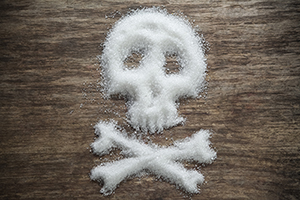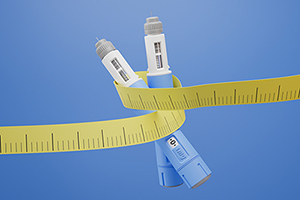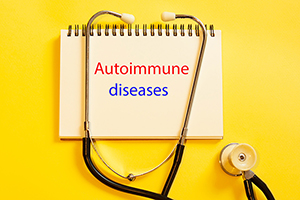



| By Dr. Ronald Hoffman
In 1994, CEOs of major tobacco companies were summoned to Congress and subjected to questioning about the health perils of cigarettes. They testified that they didn’t believe that cigarettes were addictive. The execs averred under oath that cigarettes “may” cause lung cancer, heart disease and other health problems, but claimed that “the evidence is not conclusive.”
 This notwithstanding the mounds of scientific studies confirming cigarettes’ health effects, and R.J. Reynolds’ own animal testing conducted in the 80s that demonstrated tobacco was addictive.
This notwithstanding the mounds of scientific studies confirming cigarettes’ health effects, and R.J. Reynolds’ own animal testing conducted in the 80s that demonstrated tobacco was addictive.
The story is admirably recounted in the 1999 thriller “The Insider” in which Russel Crowe plays a tobacco industry whistleblower. The film documents the way cigarette companies sandbagged evidence that their products were agents of death and disease. At times, the character played by Crowe feared for his life.
A similar pattern is emerging with Big Sugar. The stage is set for a reckoning such as befell Big Tobacco. Regulators and lawyers are already sharpening their claws for an onslaught on sugar producers who knowingly foisted a dangerous and addictive product on the unsuspecting U.S. public.
The pieces are falling into place:
1) ADDICTION.
It’s pretty obvious that people get hooked on cigarettes. At the same time they were casting aspersions on the research, tobacco companies were deliberately engineering cigarettes to be more addictive.
The same could easily be said of sugar products. Many processed foods are little more than clever delivery systems for sugar, with maximum palatability and appeal. If the makers of oxycodone can be sued by attorneys general for spawning an epidemic of opiate addiction, might it not be argued that sugar manufacturers bear some responsibility for knowingly promoting their own highly addictive product?
The final nail in the coffin might be a study that, for the first time, reports brain changes associated with high sugar consumption that closely mirror those seen in drug and alcohol dependency. The dendrites—connections between brain cells—were distinctly shorter in animals fed sugar; this is objective evidence of hardwired alterations that may permanently affect cognition and impulse control. In other words: “This is your brain on sugar.”
2) HARMFUL.
It’s now becoming pretty clear that sugar-laden foods and beverages are responsible for the epidemics of obesity, diabetes and Metabolic Syndrome that are afflicting this country. The tipping point might be this study, which states that “just 3 months on a high-sugar diet alters fat metabolism in such a way that it may cause even healthy people to raise their risk of heart disease.” While fat used to be fingered as the culprit, it’s becoming abundantly clear that excess sugar promotes not just heart disease, but also Type 2 diabetes, certain cancers, and non-alcoholic fatty liver disease (NAFLD)—the leading cause of liver failure in the U.S.
The authors conclude: “This raises concern for the future health of the younger population, especially in view of the alarmingly high prevalence of NAFLD in children and teenagers, and exponential rise of fatal liver disease in adults.” It’s sobering to remember the average American consumes 158 pounds of sugar per year!
3) CONCEALMENT AND DECEPTION.
They call it “healthwashing”—a deliberate campaign to obfuscate the truth. Healthwashing acts like a smokescreen. For example, suspect food manufacturers get behind initiatives like “Let’s Move!” to divert attention away from the harmful effects of their products and put the blame instead on sedentary lifestyles.
“Moderate intake” (whatever that is, since we’re talking about an inherently addictive substance!) of sugary foods and soda, they contend, can be part of “a healthy, active lifestyle.” Also, “protecting consumer freedom and choice” has been adopted as the mantra of the sugar apologists.
Experts are hired to “controversialize” the notion that sugar is responsible for obesity, pointing instead to dietary fats. Recently uncovered documents reveal a concerted campaign in the 1960s by Big Sugar to bribe experts to minimize sugar’s deleterious effects.
“It was a very smart thing the sugar industry did, because review papers, especially if you get them published in a very prominent journal, tend to shape the overall scientific discussion,” co-author Stanton Glantz told The New York Times.
To burnish their images, the Coca-Cola Co. and PepsiCo recently sponsored at least 96 national health organizations at the same time the companies were lobbying against public health bills intended to reduce how many sugary sodas people drink, according to a paper published in the American Journal of Preventive Medicine.
They’ve diversified their portfolio to offer tiny “portion-controlled” cans of soda (you’ll probably just drink more!), artificially sweetened beverages (now demonstrated to paradoxically increase weight gain!) and expensive bottled waters (some just tarted-up municipal water!).
I’m no lawyer, but it seems obvious to me that if you knowingly purvey a product that is harmful and highly addictive, and have deliberately deceived the public with knowledge (if not malice) aforethought, that pretty much fits the bill for product liability. There’s no question that sugar industry executives are circling the wagons to avoid following in the footsteps of Big Tobacco. But that won’t protect them from the inevitable onslaught of consumer advocates, politicians, and the legal profession now that the truth about sugar is emerging—it’s just a matter of time.
Though we think of declining estrogen as the hallmark of menopause, it's actually common for…

Up to 12 percent of Americans have ulcers at some point in life. Peptic ulcers…
Gallbladder disease is a modern illness. An estimated 20 million Americans have gallbladder disease. The…

New, more powerful weight loss drugs: Drugs like Wegovy, Rybelsus, Ozempic and Mounjaro/Zepbound are revolutionizing…

According to the Lancet, autoimmune disease affects one in ten people globally and it’s now…

This past week we were regaled with headlines like: High levels of niacin may increase…

Leyla Weighs In: The Erosion of Trust in Nutritional Research

Our virtual voicemail is open 24/7, so there's no need to wait to submit your questions for Dr. Hoffman. Leave a message, and you may hear your question featured on the Intelligent Medicine radio program!